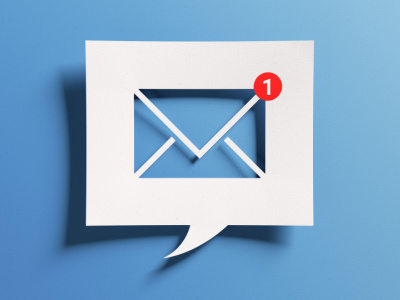Email is woven into our work lives. It’s important, and we should treat it as important, so we need to take a minute to think about making it more effective. Here are three suggestions.
Suggestion #1: Respond
Somewhere along the line, email made us forget basic manners, but its ease of use is to blame, not our basic nature. Someone in the hallway says, “Good morning,” and we respond in kind. But oftentimes, people send an email and get no response. Example: “Hi. I have a doctor’s appointment and won’t be able to make the meeting on Friday. I’ll review the meeting notes on Monday.” Then, crickets.
The sender thinks: Did the person get the email? Is she upset with me? At worst, catastrophic thinking sets in. How hard is it to respond with “Hope you’re well, and thanks for the heads-up”? To ask the question is to answer it.
Suggestion #2: Write a Meaningful Acknowledgment
Let’s say you’re copied on an email to your work group. “Lola’s article on XYZ was published in our industry magazine. A copy is attached. Way to go, Lola!”
Here’s your choice: Tap out “Congrats” and get on with your busy day, or make an investment of 5 minutes to peruse the article and write, “Liked your article. Good grouping of the issues we face every day. A real contribution. Thanks.”
Which would you rather receive? And, by the way, CC all. If you really believe you’re on a team, then show it to others. Is it really a burden to read a three-sentence email?
Suggestion #3: Ditch emoticons
Until I became a law professor, I eschewed the use of the exclamation point. But I’ve changed thanks to my young students, who taught me the value of a well-placed “!” The line, though, is drawn at the use of emoticons, which—unlike the exclamation point or the question mark—aren’t accepted punctuation in the English language.
Emoticons are a crutch. They make us lazy. They stunt our ability to express ourselves sincerely; forthrightly; and, now that I think about it, humanely. And that’s a victory against the ever-encroaching use of artificial intelligence (AI).
Bottom Line
And speaking of humanity, my concluding thought: Occasionally ditch email. Walk down the hall to a colleague’s office, or talk about an issue over a libation. There are options, and we possess free will. Like email, that’s another tool in your work tool belt. Use it.
Michael P. Maslanka is a professor at the UNT-Dallas College of Law. You can reach him at michael.maslanka@unt-dallas.edu.

